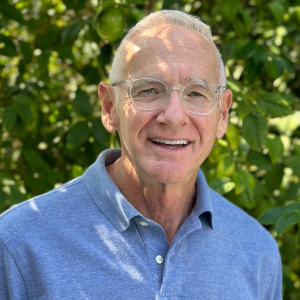
Infection Prevention and Control (IPC) is a practical, evidence-based approach to prevent avoidable infections in health care settings, including those caused by anti-microbial resistant germs. Antimicrobial Resistance (AMR) occurs when an infection no longer responds to the medicines that were designed to treat them (i.e. antimicrobials including antibiotics, antifungals, antiparasitics, and antivirals). No one should get sick while receiving or providing health care. However, no country can claim to be free of what are called Healthcare Associated Infections (HAIs) which unfortunately are one of the most common patient safety risks. Some of the well-known potentially harmful organisms or germs include (not limited to) Clostridium difficile (C. difficile), Carbapenem-resistant Enterobacteriaceae (CRE), Staphylococcus aureus, Methicillin-resistant Staphylococcus aureus (MRSA) and of concern, Extended-spectrum beta-lactamase (ESBL) gram negative organisms like Pseudomonas aeruginosa.
Strengthening IPC programmes and best practices and ensuring access to safe water, sanitation, and hygiene (WASH) in all healthcare settings can achieve a significant reduction in the rates of infection and as such reduce death or disability from these infections.
The inappropriate use of antimicrobial medicines accelerates the emergence and spread of AMR infections. IPC provides a way to curb the spread of resistant infections in hospitals, reducing the need for them. In healthcare, IPC, including hand hygiene at the appropriate times, effective WASH and the responsible use of antimicrobial medicines (antimicrobial stewardship), all allow for an effective approach to addressing this global issue. Ultimately, this approach saves lives, curtails healthcare costs, and alleviates an unnecessary burden on healthcare systems.
Hand hygiene is still one of the most effective things we can all do to keep people safe from infections in healthcare. So, sharing knowledge about hand hygiene is important. There are many reasons why educating and changing behaviours of health and care workers and others, including patients, is challenging, along with the successful implementation of turning knowledge into practice. This includes pressures on time, lack of resources, human and otherwise – and in some countries including a lack of running water – etc. Health literacy can also be a challenge in many settings. Raising awareness about the importance of learning on hand hygiene at the right times to prevent a range of infectious diseases and AMR has been highlighted by many leading organizations including the World Health Organization (WHO).
Ultimately, hand hygiene stops the spread of harmful infections, some of which are resistant to antimicrobial medicines; it saves lives – yours, a loved ones or someone most vulnerable in society – so why would we not want to commit to this!
The WHO, like other organizations, has a range of tools to help people and patients engage in positive conversations in healthcare, if appropriate and possible. One tool highlights actions such as; asking if there is an initiative involving patients or a patient participation programme for hand hygiene? Observing if alcohol-based handrub dispensers, as well as sinks, soap and towels are available for health workers to readily use when caring for you, and if hand hygiene products are available, to start by thanking your doctor, nurse, or other health worker for using them. In addition, patients have the right to ask for more information around how to perform hand hygiene and politely remind health care workers to clean their hands before they touch them, particularly if they are working with a wound dressing, catheter, drainage tube or any other situation that creates an opportunity for a deadly germ to enter their body.
In another tool launched in 2017, the WHO also highlighted to patients and others the key times for their own hand hygiene in healthcare to support control of AMR such as; a) before touching a/their own wound dressing or IV line site, b) after touching other patients, c) after using the toilet. It is equally important for patients to make sure that objects they bring into a healthcare setting are kept clean, for example a mobile phone, but more importantly after touching their own items and before touching their loved one without cleaning their hands!
In addition, each year the WHO focuses on empowering different target audiences to get involved in their World Hand Hygiene Day campaign including those receiving health care/members of the public.
Beyond healthcare setting walls, consideration is equally important in our own communities. At the height of the COVID-19 pandemic, the British Psychological Society provided examples of empowering people to consider the timings for their own hand hygiene. It centred on the if/when concept, aiding individuals in planning and preparing to clean their hands at crucial moments to safeguard themselves. This approach could diminish the spread and the risk of acquiring AMR infections, which are also prevalent in the community, food, animals, and the environment.
But is all of this enough? Working together to find solutions in both healthcare facilities and in our communities will help us advocate for our health in the long-term. It will also help us learn more and support the need for investments and ongoing efforts in IPC to combat AMR. Together, we can share consistent and clear messages and explore opportunities to make a difference in the strategies that address this issue. Let’s learn together and share what works in different settings for the benefit of everyone.

Claire Kilpatrick
Claire Kilpatrick is a graduate of the University of Glasgow in Infection Prevention and Control (IPC) and medical sciences. She was awarded a Doctor of Science by Glasgow Caledonian University in 2023 and is a member of the faculty of travel medicine at the Royal College of Physicians and Surgeons (Glasgow). You can read more about her experience here as an independent advisor to The AMR Narrative.











